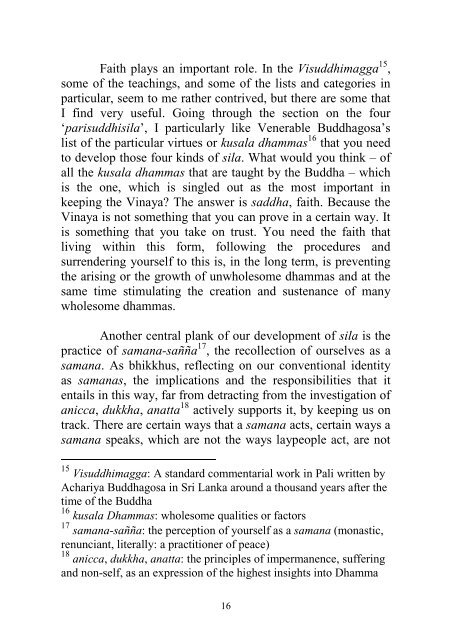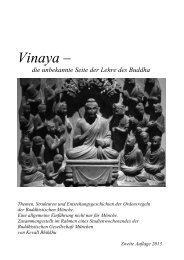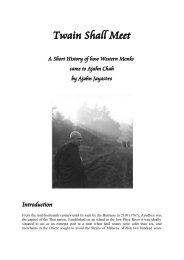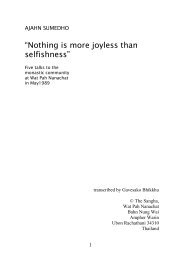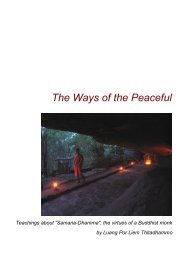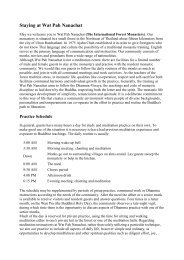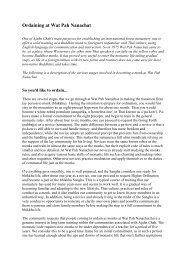Khanti - Wat Pah Nanachat
Khanti - Wat Pah Nanachat
Khanti - Wat Pah Nanachat
Create successful ePaper yourself
Turn your PDF publications into a flip-book with our unique Google optimized e-Paper software.
Faith plays an important role. In the Visuddhimagga 15 ,<br />
some of the teachings, and some of the lists and categories in<br />
particular, seem to me rather contrived, but there are some that<br />
I find very useful. Going through the section on the four<br />
‘parisuddhisila’, I particularly like Venerable Buddhagosa’s<br />
list of the particular virtues or kusala dhammas 16 that you need<br />
to develop those four kinds of sila. What would you think – of<br />
all the kusala dhammas that are taught by the Buddha – which<br />
is the one, which is singled out as the most important in<br />
keeping the Vinaya? The answer is saddha, faith. Because the<br />
Vinaya is not something that you can prove in a certain way. It<br />
is something that you take on trust. You need the faith that<br />
living within this form, following the procedures and<br />
surrendering yourself to this is, in the long term, is preventing<br />
the arising or the growth of unwholesome dhammas and at the<br />
same time stimulating the creation and sustenance of many<br />
wholesome dhammas.<br />
Another central plank of our development of sila is the<br />
practice of samana-sañña 17 , the recollection of ourselves as a<br />
samana. As bhikkhus, reflecting on our conventional identity<br />
as samanas, the implications and the responsibilities that it<br />
entails in this way, far from detracting from the investigation of<br />
anicca, dukkha, anatta 18 actively supports it, by keeping us on<br />
track. There are certain ways that a samana acts, certain ways a<br />
samana speaks, which are not the ways laypeople act, are not<br />
15 Visuddhimagga: A standard commentarial work in Pali written by<br />
Achariya Buddhagosa in Sri Lanka around a thousand years after the<br />
time of the Buddha<br />
16 kusala Dhammas: wholesome qualities or factors<br />
17 samana-sañña: the perception of yourself as a samana (monastic,<br />
renunciant, literally: a practitioner of peace)<br />
18 anicca, dukkha, anatta: the principles of impermanence, suffering<br />
and non-self, as an expression of the highest insights into Dhamma<br />
16


